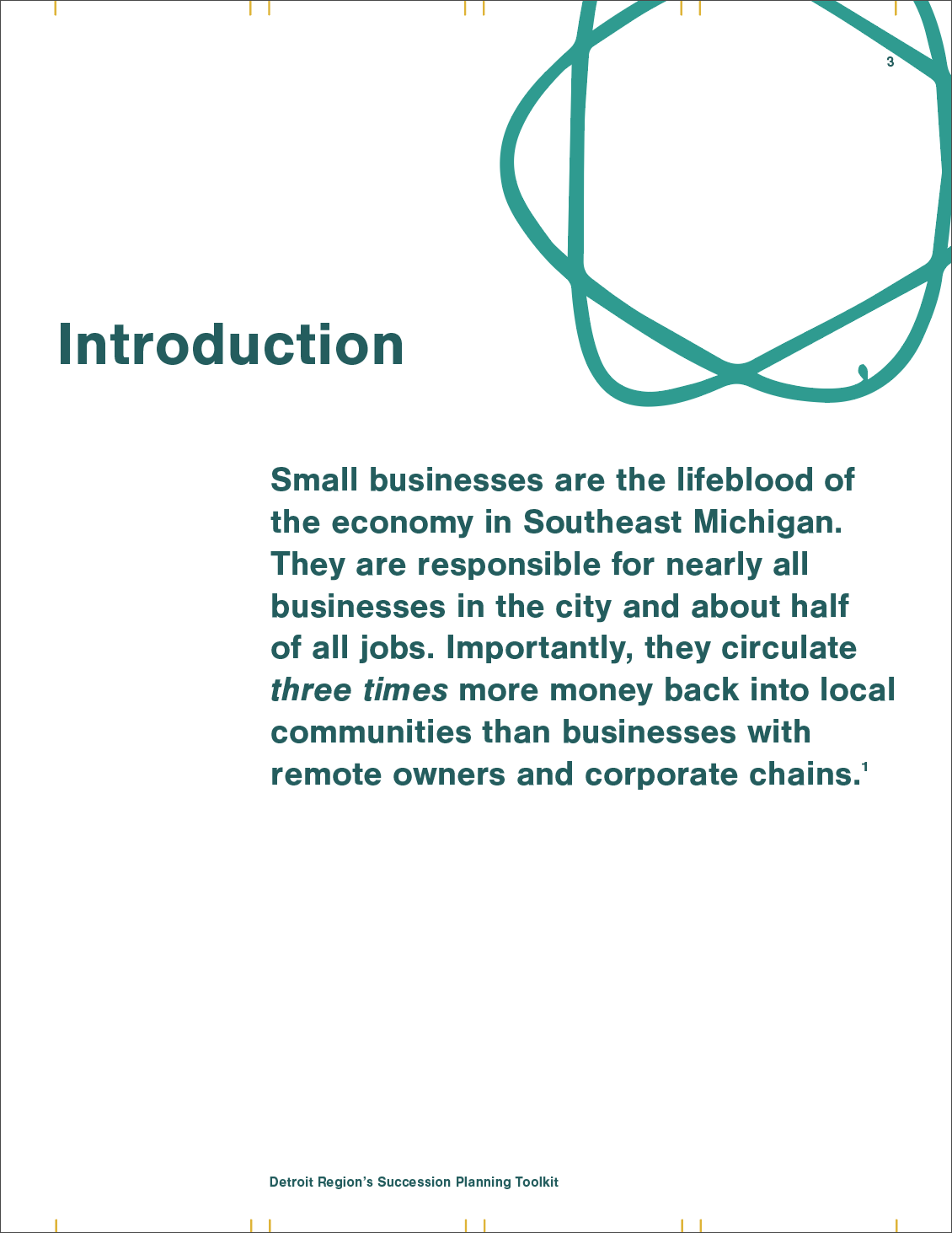Succession Planning
Toolkit

Introduction
Small businesses are the lifeblood of the economy in Southeast Michigan. They are responsible for nearly all businesses in the city and about half of all jobs. Importantly, they circulate three times more money back into local communities than businesses with remote owners and corporate chains.1
A critical component to securing business retention, job retention, and economic health in Southeast Michigan is ensuring that business owners have the information and resources needed to properly prepare for their succession from the business they have spent their career building.
Over the next 10 years, more than 4 million U.S. businesses owned by retiring baby boomers will change hands or dissolve.² It’s referred to as the ‘Silver Tsunami’. Even before the recent accelerated wave of retirement from the pandemic or so-called Great Resignation, there has been a shortage of workers to replace these business owners, especially those with the necessary experience and skills.³ The ‘Silver Tsunami’ stands to be the largest transfer of wealth in U.S. history. Now is the time to address important questions about business retention – what will become of these businesses that are irreplaceable sources of jobs, innovation, social capital, and community identity?⁴
The ‘Silver Tsunami’ will have significant effects on Detroit’s local economy. By the numbers, baby boomers own almost half of all privately-held businesses in the 7-county Detroit region.⁵ An astounding 400,000 jobs are at risk because up to 80% of these business owners have no succession plan in place. Those put on the market can have a hard time finding a buyer when they are ready to sell.
78% of small business owners say that selling their business is their retirement plan, yet only 20% of businesses put on the market actually sell.6
Compared to the national rate, the rate of micro and small business growth in Wayne County continues to shrink. Given that most wealth, innovation, and employment come from small businesses, reducing barriers to entrepreneurship must be an integral part of any solution that seeks to increase economic recovery in Detroit.
Ensuring business retention is another critical strategy for creating a more equitable economy in Detroit. Detroit has one of the lowest entrepreneurship rates among U.S. cities, ranking 99th among the country’s 100 largest cities.⁷ Detroit also struggles to maintain middle-class jobs within the city limits. Nearly 70% of Detroiters leave the city each day for work, and for the last decade more working-age people have been moving out, than moving in.More opportunities for those working within Detroit would have a profound effect on economic equity, particularly for Black Detroiters, immigrants, returning citizens, and everyday working families, bringing more people into the middle class.
We published this toolkit as a free resource and guide in succession planning. Included here are local technical assistance and professional service providers for small business owners. We aim to support small business retention, higher wage jobs for employees, and opportunities for worker ownership to ensure that business owners’ legacies survive for years to come.
This toolkit will introduce succession planning to business owners, help you establish why it is important to plan and plan ahead, and identify options for transitioning your business’s ownership. It will also provide tools, templates, and resources to get you started. The more mainstream models that are widely used today are covered, as well as more innovative models that allow for better employee retention through employee and worker ownership.
Succession Planning Toolkit PDF
Includes fillable PDF appendices










